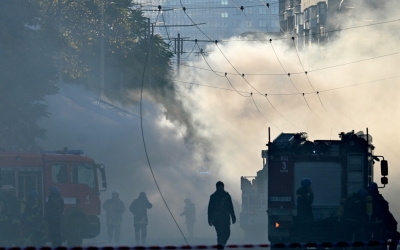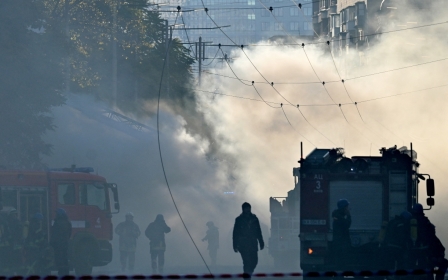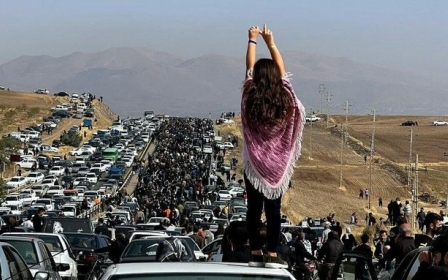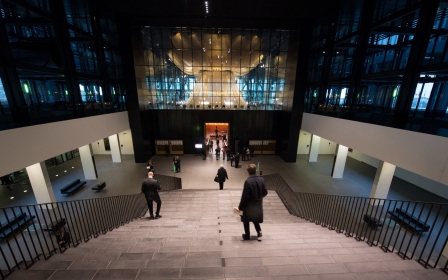Iranian press review: Removal of hijab law would lead to 'nudity'
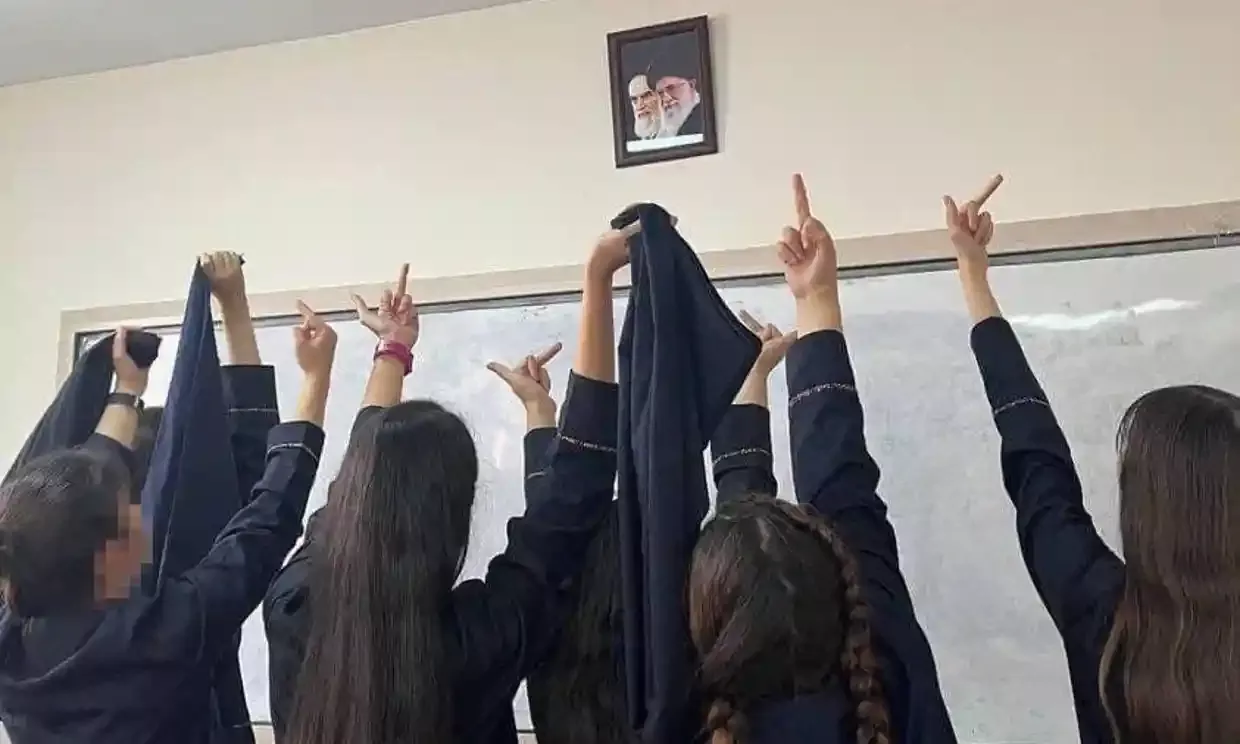
Religious body says removing hijab is a crime
Iran's headquarters for the promotion of virtue and prevention of vice, a powerful religious organisation responsible for defining regulations relating to the hijab and Islamic attitudes in Iran, has said it will not ease laws on the wearing of the clothing despite protests calling for it to no longer be obligatory.
In an interview with Khabar Online, Ali Khan Mohammadi, the organisation's spokesman, said: "In our constitution, removing the hijab is a crime, and [our] organisation will not step back from implementing the [wearing of the] hijab."
'If they bring down this symbol, then nudity and other things will come afterwards'
- Ali Khan Mohammadi
Commenting on mass protests by Iranians against the wearing of the hijab, Khan Mohammadi said that new methods would soon be deployed to implement hijab regulations.
"The enemy is attempting to bring down the headscarf, which is a symbol [of Sharia law]," he was quoted as saying.
New MEE newsletter: Jerusalem Dispatch
Sign up to get the latest insights and analysis on Israel-Palestine, alongside Turkey Unpacked and other MEE newsletters
"If they bring down this symbol, then nudity and other things will come afterwards.
"Officials have been rethinking the lack of hijab and taken that as a serious matter.
"This is contrary to what people think, that now there is freedom regarding the hijab and they can remove their headscarves," he concluded.
September's protests were originally confined to demonstrations against the law obliging the wearing of the hijab and the "morality police", but have expanded rapidly to target the entire establishment.
Oil and gas co-operation with Russia accelerates
Iran and Russia have started new joint projects in the oil and gas industries after western countries increased harsh sanctions against both countries, local media has reported.
The Ebtekar daily said that Russian contractors and investors had invested $4.5bn in seven Iranian oil and gas fields. Some of the projects had already started and were up to 35 percent complete, it added.
Western countries have hit Russia with several sanctions since its invasion of Ukraine, while Iran was saddled with a new round of sanctions following its recent brutal crackdown on nationwide anti-government protests.
The sanctions have served to bring Tehran and Moscow closer together.
On Tuesday, Javad Oji, Iran's oil minister, said that collaboration between the two countries would serve to "neutralise" the economic pressures exerted by the West.
"The two countries can neutralise international sanctions by working together... and in the future, our economic ties will increase on a daily basis," Oji was quoted as saying.
On Tuesday, Iran and Russia signed four deals to begin collaboration in the fields of transportation, health and banking.
Iran and close Russian ally Armenia have also agreed to double the amount of natural gas that Tehran sells to Yerevan, and to extend their gas trade agreement to 2030, the ISNA news agency reported.
The deal was made during a visit by Armenian Prime Minister Nikol Pashinyan to Tehran on Tuesday.
"Now we export one million cubic metres of gas to Armenia daily, which will be doubled based on the new memorandum," said Majid Chegeni, Iran’s deputy oil minister.
Journalists deny overseas influence
Iranian journalists and veteran activists have demonstrated in support of journalists who have been arrested since the beginning of anti-government protests in September.
The nationwide protests began after 22-year-old Mahsa Amini died in police custody, after she was detained by Iran's "morality police" on 16 September over how she was wearing her hijab.
Last week, in a 30-page statement, Iran's intelligence ministry and the intelligence branch of the Islamic Revolutionary Guard Corps (IRGC) accused detained journalists of working for the CIA and Israel.
'The message sent by the two intelligence organisations' statement is that journalism is a crime and should be banned'
- Association of Tehran Journalists
The statement accused Niloofar Hamedi and Elahe Mohammadi, referred to by their initials in the report, of "provoking" Amini's family and fuelling the protests in the country.
The Association of Tehran Journalists criticised the statement, saying the arrests by the intelligence services were "revenge on the Farsi language satellite channels" based outside the country.
"The message sent by the two intelligence organisations' statement is that journalism is a crime and should be banned," the journalists' association added.
Abbas Abdi, a prominent civil activist and veteran journalist, ridiculed parts of the statement in which the professional activities of the two journalists were referred to as espionage.
"Believing that Elahe Mohammadi - after years of successful professional activity – went on a trip [abroad] to learn what news values are, is akin to teaching the multiplication table to someone with a PhD in maths," Abdi wrote on Twitter.
Ahmad Zeidabadi, a journalist and political activist who was imprisoned for six years after anti-government protests in 2009, also criticised the statement, based on the fact that Iran's criminal law forbids publishing the names of those accused before a court verdict.
"The intelligence minister and head of the IRGC intelligence service must explain to people why they published Elahe Mohammadi and Niloofar Hamedis' names, before their appearing in court, and while they are detained in a security prison?" he wrote in a post on Telegram.
*Iranian press review is a digest of news reports not independently verified as accurate by Middle East Eye.
Middle East Eye delivers independent and unrivalled coverage and analysis of the Middle East, North Africa and beyond. To learn more about republishing this content and the associated fees, please fill out this form. More about MEE can be found here.


